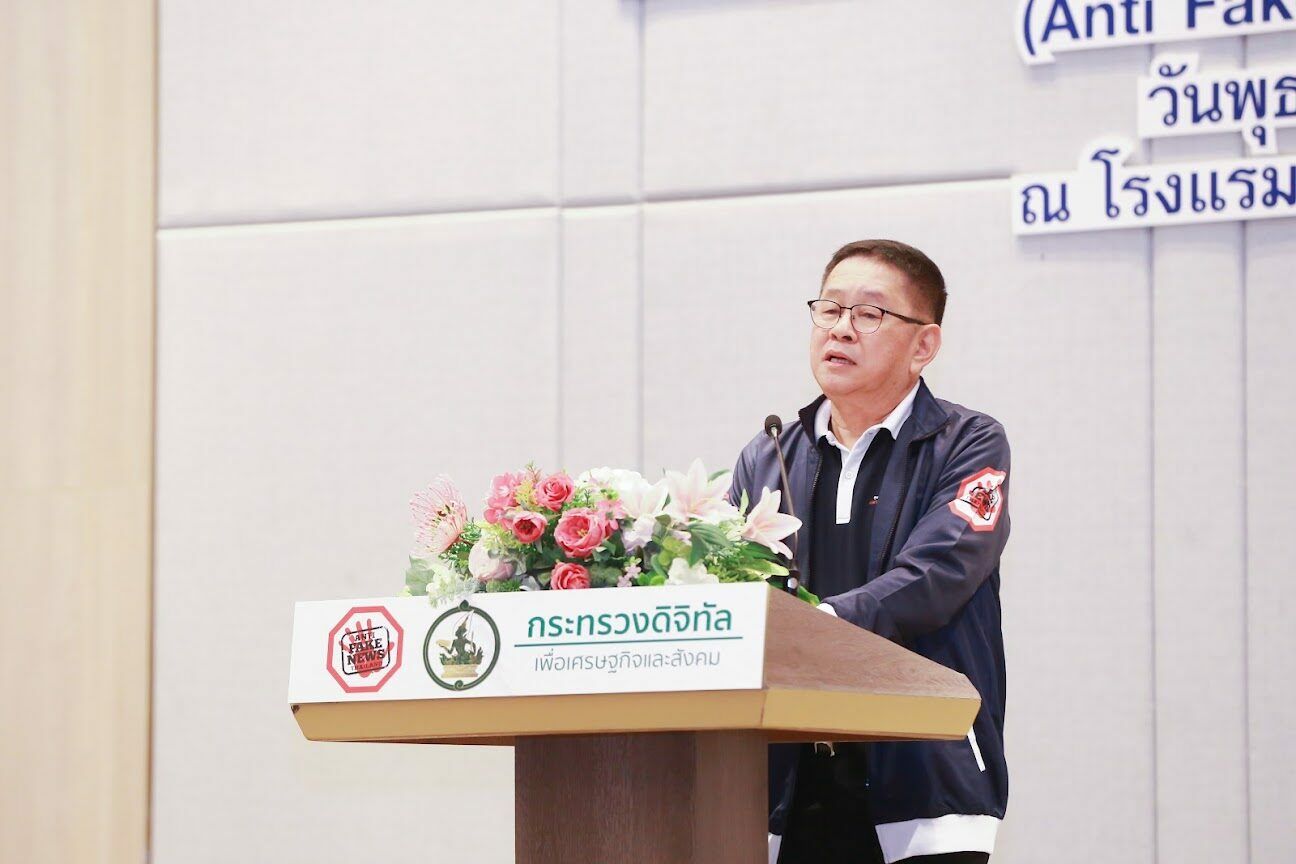Thailand mobilises 400 agencies to combat fake news and scams

The Government of Thailand mobilised 400 agencies to combat fake news and online scams. The initiative, led by the Ministry of Digital Economy and Society (DE) aims to address the growing problem of misinformation.
Minister of Digital Economy and Society, Chaiwut Thanakamanusorn presided over the opening of a workshop on the use of systems for coordinating news verification. This event was part of the DE’s Anti-Fake News Centre (AFNC) project, which aims to tackle fake news by collaborating with both the public and private sectors.
The government recognises the importance of addressing the issue of fake news. The ministry has been tasked with resolving these issues in partnership with state and private agencies. In response, a fact-checking network has been developed, amassing over 400 agencies, making it the largest fact-checking network in Thailand.
This network works together to solve the problem of misinformation and provide factual information to the public.
The Anti-Fake News Centre utilises social listening tools to filter information disclosed in public spaces, including social media and the internet. Each month, approximately 95 million messages (or an average of 3.1 million messages per day) are screened.
Out of these, 29,000 messages qualify for verification, covering 791 different topics. The fact-checking system has verified 444 topics, with 215 reports published monthly (152 fake news reports, 50 true news reports, and 13 distorted news reports).
Three key policies
Chaiwut outlined three key policies for the Anti-Fake News Centre. The first key policy involves utilising Artificial Intelligence (AI) for enhanced efficiency. AI systems are employed to search, collect, and analyse data and messages on key topics across popular online platforms such as Facebook, X (Twitter), Instagram, and TikTok. The system can gather information from text, images, videos, and graphics, automatically monitor posts, and identify the sources.
The second policy aims to address online crime-related fake news. This includes misinformation regarding investment opportunities, low-interest loans, job recruitment, and income-generating opportunities.
The centre considers these topics often include false claims regarding collaboration with state agencies to gain credibility, leading to personal data disclosure or widespread dissemination, resulting in personal financial loss and societal distress. The centre publishes 155 warning news reports monthly, reaching the public 18.6 million times per month, reported KhaoSod.
The last policy involves expanding collaboration networks. The collaboration extends to fact-checking networks and networks that provide knowledge and warnings about fake news. For example, a partnership with Krungthai Bank allows for the dissemination of important online scam warnings through the Paotang application, said Chaiwut.
“The DE Ministry has expedited efforts to address fake news that impacts the public. This initiative, in collaboration with relevant agencies, aims to raise awareness about fake news spread on online and social media platforms, serving as a protective shield for the public, thus fostering sustainable happiness in society.”
Latest Thailand News
Follow The Thaiger on Google News:


























